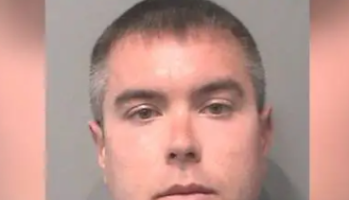(ehaurylik/Getty Images)
In an age when so many are forced to cope with the demands of maintaining a constant presence on multiple social media platforms and answering text messages while driving, it’s inevitable that some parents will inadvertently pulverize their child’s pet with the family minivan from time to time.
While the loss of a beloved lower-class member of the family under gruesome circumstances can be emotionally traumatizing to you as the parent, it’s important to keep the proper perspective in the wake of tragedy and realize that it’s really not that big of a deal in the grand scheme of things. Parents run over their kids’ pets all the time, and your child will get over it eventually.
The key to minimizing any stress associated with the hassle of having to break the news to your child that “Mr. Whiskers is a goner” is to have a game plan in place ahead of time so that you’re prepared for when the inevitable occurs.
1. Ensure You’ve Done Due Diligence.
While the majority of mashed felines will die within moments of being crushed, some are more stubborn and continue to struggle in their mangled state for several minutes or more. Should that occur in your particular situation, it is absolutely crucial that you remain calm and move quickly to ensure that the animal does not needlessly suffer further discomfort. As the parent, it is your responsibility to get back in the vehicle and finish the job.
2. Start with Something Positive.
Avoid being overly blunt when the time comes for you to inform your child that her best friend is now wedged under a Goodyear radial. Smile and begin the conversation with a positive statement like, “Good news! We’re going to get a new kitten!” or “Guess what, sweetheart? You don’t have to clean out Mr. Whisker’s litter box anymore!”
This upbeat approach will flood your child’s brain with endorphins and place her in a temporary state of euphoria, which helps to counteract her emotional devastation when you deliver the news that kitty is now in heaven with grandma.
3. Provide Closure.
Like adults, all children need to experience closure as a part of the grieving process. Once you’ve explained to your child that her cat is dead and is never coming back again, gently grasp her by the hand and lead her to the location of Mr. Whiskers’ now lifeless and devastatingly disfigured body to say her goodbyes.
Resist the natural urge to prevent your child from seeing her beloved pet’s carcass as it will only serve to hinder the process of grieving and could potentially fuel unrealistic, childish notions that the animal is simply “not here anymore” and might return home one day. In order for your child to develop into an emotionally mature and fully functional adult, it is absolutely essential for her to understand that death is permanent and Mr. Whiskers is gone forever.
4. Provide Comfort and Perspective.
You can lessen the emotional impact of losing a pet by helping your child to understand that although she deeply loved the cat, animals have no emotions of their own and therefore, no concept of love.
It may also be of benefit to tell your child that everything happens for a reason and Mr. Whiskers getting squashed was just part of God’s plan. Moreover, remind her that while it’s perfectly acceptable to feel sad that Mr. Whiskers is roadkill, animals are not people and the cat can easily be replaced.
5. Reinforce a Message of Personal Responsibility.
In the wake of a devastating loss, a child will often question whether or not she could have done something to prevent the tragedy. Resist the urge to absolve her of responsibility in the matter and recognize this opportunity for a teachable moment by allowing her to take partial ownership of what has occurred. Yes, maybe Mr. Whiskers would still be alive if she had kept a closer eye on him. This approach gives the child a genuine sense of independence, which in turn bolsters her confidence.
6. Invite Her to Assist with The Cleanup.
A gut-wrenching tragedy that results from your carelessness is an opportunity to bond as a family unit. Encourage your child to assist with the cleanup and disposal of Mr. Whiskers’ body. In doing so, you strengthen your child’s sense of self-worth and reinforce the message that family is always there for each other, even if Mr. Whiskers is not.
Finally, it’s important to realize that our insensitive jerk of a writer, Brian Baker, put this blog post together against our wishes. Please tell him what an a-hole he is on Twitter, username: NaptownBri
Enjoy more helpful squashed kitty clean-up solutions in future articles.











